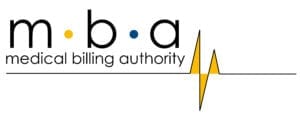In today’s digital healthcare ecosystem, the seamless exchange of information between systems has become critical to operational success. Data interoperability — the ability of different information systems, devices, and applications to access, exchange, and cooperatively use data — stands as a cornerstone of efficient medical billing operations. For healthcare providers seeking to optimize their revenue cycle, understanding and implementing interoperability solutions isn’t just beneficial; it’s essential.
What Is Data Interoperability in Healthcare?
Data interoperability in healthcare refers to the ability of different information technology systems and software applications to communicate, exchange data, and use the information that has been exchanged. In medical billing, this means that patient records, insurance information, procedure codes, and financial data can flow seamlessly between electronic health record (EHR) systems, practice management software, and payer platforms.
The healthcare industry recognizes three levels of interoperability:
- Foundational interoperability: Basic data exchange between systems
- Structural interoperability: Standardized format and structure of exchanged data
- Semantic interoperability: Shared understanding of the meaning of exchanged data
For medical billing to function optimally, all three levels must work in harmony.
The Current Challenge: Fragmented Systems
Many healthcare practices struggle with fragmented systems that don’t communicate effectively. When your EHR doesn’t properly integrate with your billing software, and your billing software doesn’t seamlessly connect with payer systems, the result is a cascade of inefficiencies:
- Manual data re-entry leading to errors in medical billing¹
- Delayed claim submissions affecting cash flow management²
- Increased claim denials due to information inconsistencies
- Administrative burden on staff who must reconcile disparate systems
- Extended revenue cycle timelines
As noted in industry research, transposing digits and omissions are among the easiest ways to cause rejection or denial, particularly when information must be manually transferred between systems¹.
How Interoperability Transforms Medical Billing
1. Automated Insurance Verification
When systems communicate effectively, insurance verification happens automatically in real-time. Before a patient arrives, your practice management system queries the payer’s database to confirm:
- Active coverage status
- Deductible information
- Co-payment amounts
- Prior authorization requirements
This proactive approach prevents the common issue of wrong insurance companies receiving claims — a problem that frequently occurs when patients don’t have their cards available².
2. Streamlined Claims Processing
Interoperable systems enable automatic population of claim forms with accurate patient demographics, diagnosis codes, and procedure codes. This automation addresses several critical pain points:
- Eliminates manual data entry errors
- Ensures proper code linkage between diagnoses and procedures¹
- Reduces the time between service delivery and claim submission
- Minimizes claim denials related to data inconsistencies
When billing and coding systems integrate seamlessly with clinical documentation, the risk of submitting invalid or outdated codes decreases substantially.
3. Enhanced Denial Management
Interoperability enables sophisticated denial management strategies by providing comprehensive visibility across the entire revenue cycle³. When systems communicate bidirectionally, your practice can:
- Identify patterns in denied claims across multiple data points
- Receive real-time alerts when claims are rejected
- Automatically route denials to appropriate staff for resolution
- Track claim denial trends by payer, procedure, or provider
4. Improved Patient Financial Experience
Today’s patients expect transparency and convenience in their healthcare financial interactions. Interoperable systems support this by:
- Providing accurate cost estimates before service delivery
- Automatically calculating patient responsibility based on current insurance coverage⁴
- Enabling online payment portals integrated with practice management systems
- Facilitating flexible payment plan arrangements
Regulatory Drivers of Interoperability
The push for healthcare interoperability isn’t just a best practice — it’s increasingly mandated. Recent regulatory initiatives include:
21st Century Cures Act
This legislation promotes interoperability and prohibits information blocking, requiring healthcare providers and technology vendors to share electronic health information. For medical billing, this means improved access to the clinical documentation needed to support claims.
CMS Interoperability Rules
The Centers for Medicare & Medicaid Services (CMS) has established rules requiring payers to implement standardized application programming interfaces (APIs). These rules facilitate faster, more accurate exchange of insurance information and claims data.
HIPAA Compliance
While ensuring data interoperability, practices must maintain strict HIPAA compliance⁵. Modern interoperable systems incorporate robust security measures that protect patient information while enabling necessary data exchange.
Implementing Interoperability: Practical Steps
Choose Compatible Technologies
When selecting medical billing software, prioritize solutions that:
- Support industry-standard data formats (HL7, FHIR)
- Offer proven integration with major EHR platforms
- Provide APIs for custom integrations
- Include comprehensive training and support⁵
Establish Clear Data Governance
Successful interoperability requires clear policies governing:
- Data quality standards
- System access controls
- Audit trails and accountability
- Regular system updates and maintenance
Invest in Staff Training
Your team needs education on how to leverage interoperable systems effectively. This includes understanding:
- How data flows between systems
- When and how to verify automated information
- Troubleshooting common integration issues
- Best practices for maintaining data accuracy
The importance of continuing education in medical billing cannot be overstated, particularly as technology evolves⁶.
The ROI of Interoperability
While implementing interoperable systems requires initial investment, the return is substantial:
- Reduced administrative costs: Less manual data entry means staff can focus on complex tasks requiring human expertise
- Improved cash flow: Faster, cleaner claim submission accelerates reimbursement²
- Lower denial rates: Automated verification and validation reduce errors that lead to claim denials
- Better patient satisfaction: Transparent, accurate billing improves the patient financial experience
- Regulatory compliance: Meeting interoperability mandates avoids potential penalties
The Future: Advanced Interoperability
Looking ahead, data interoperability will continue evolving with emerging technologies:
- Artificial intelligence will enable predictive analytics across integrated datasets
- Blockchain may provide secure, immutable records of billing transactions
- Real-time benefit checks will become standard across all payers
- Patient-controlled health records will give individuals greater agency over their data
Conclusion: Making Interoperability Work for Your Practice
Data interoperability represents more than just technical capability — it’s a strategic advantage that can transform your medical billing operations. By enabling seamless information exchange, interoperable systems reduce errors, accelerate payments, and improve the financial health of your practice.
For healthcare providers navigating the complexities of modern medical billing, partnering with a professional billing service that leverages advanced interoperable technologies can be transformative. These partnerships provide access to:
- Cutting-edge integration capabilities
- Expertise in managing complex data exchanges
- Continuous updates to meet evolving standards
- Support for maximizing interoperability benefits
In an increasingly connected healthcare ecosystem, data interoperability isn’t optional — it’s essential. By embracing interoperable solutions, your practice positions itself for operational excellence and financial success.
Ready to learn More? Please contact us today at 1-800-795-1794 or 440-934-6135
Footnotes
- Avoiding Common Errors in Medical Billing ↩ ↩2 ↩3 ↩4
- 7 Tips For Effective Cash Flow Management ↩ ↩2
- Maximizing Medical Billing Collections: Strategies for Success ↩
- Mastering Patient Deductible Collections: A Healthcare Provider’s Ultimate Guide ↩
- Essential Features for Selecting Insurance Medical Billing Software ↩ ↩2
- The Importance of Continuing Education in Medical Billing ↩


